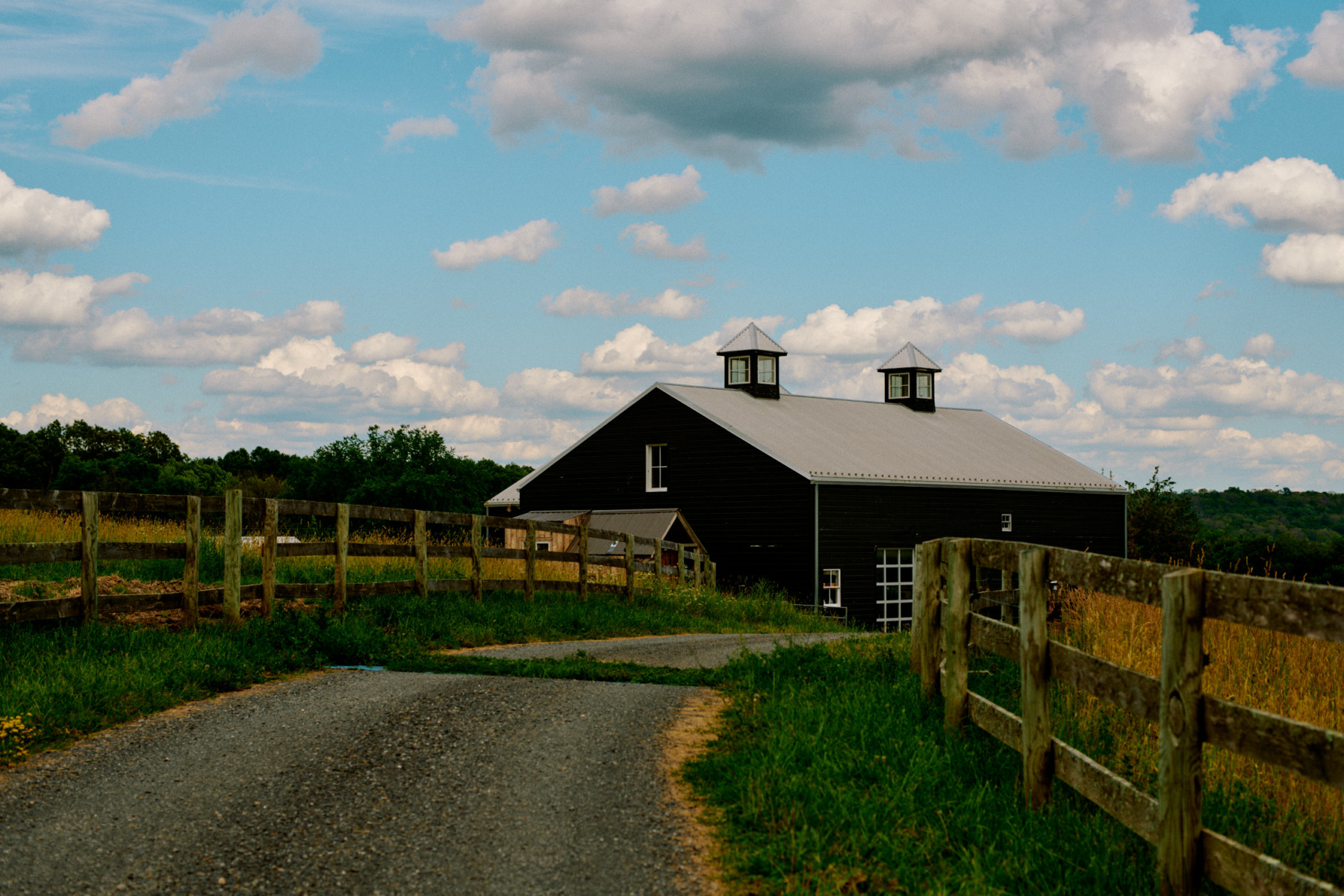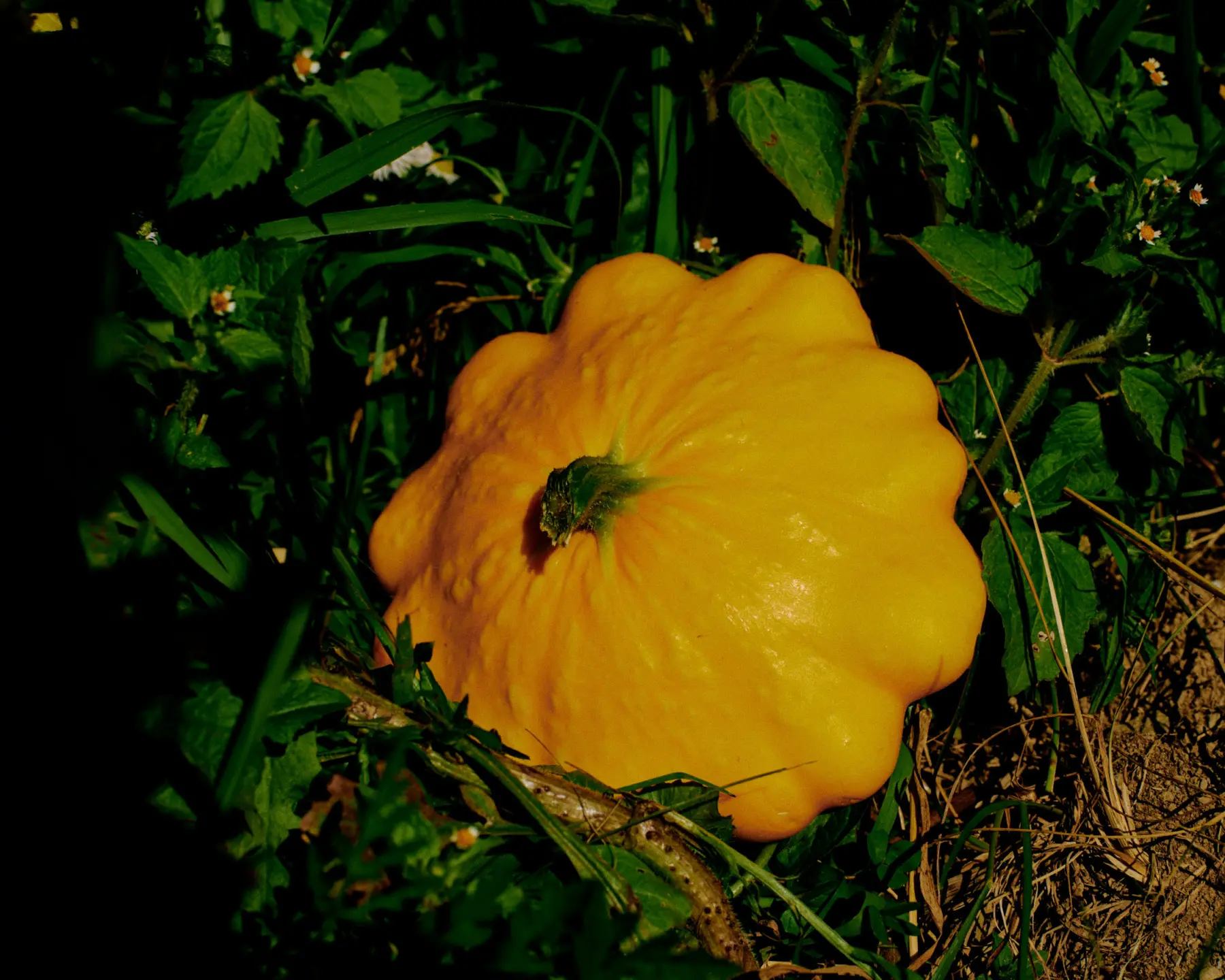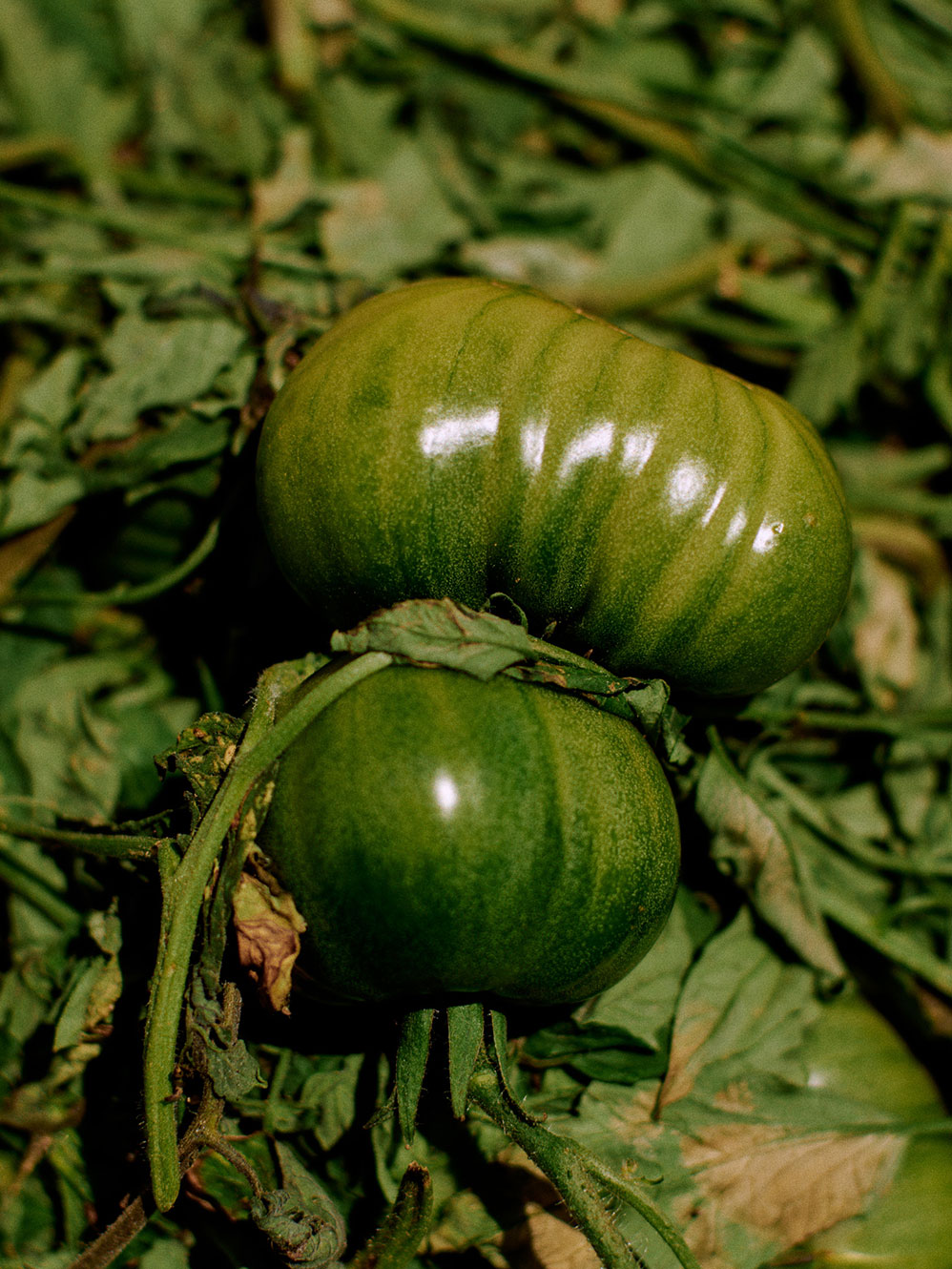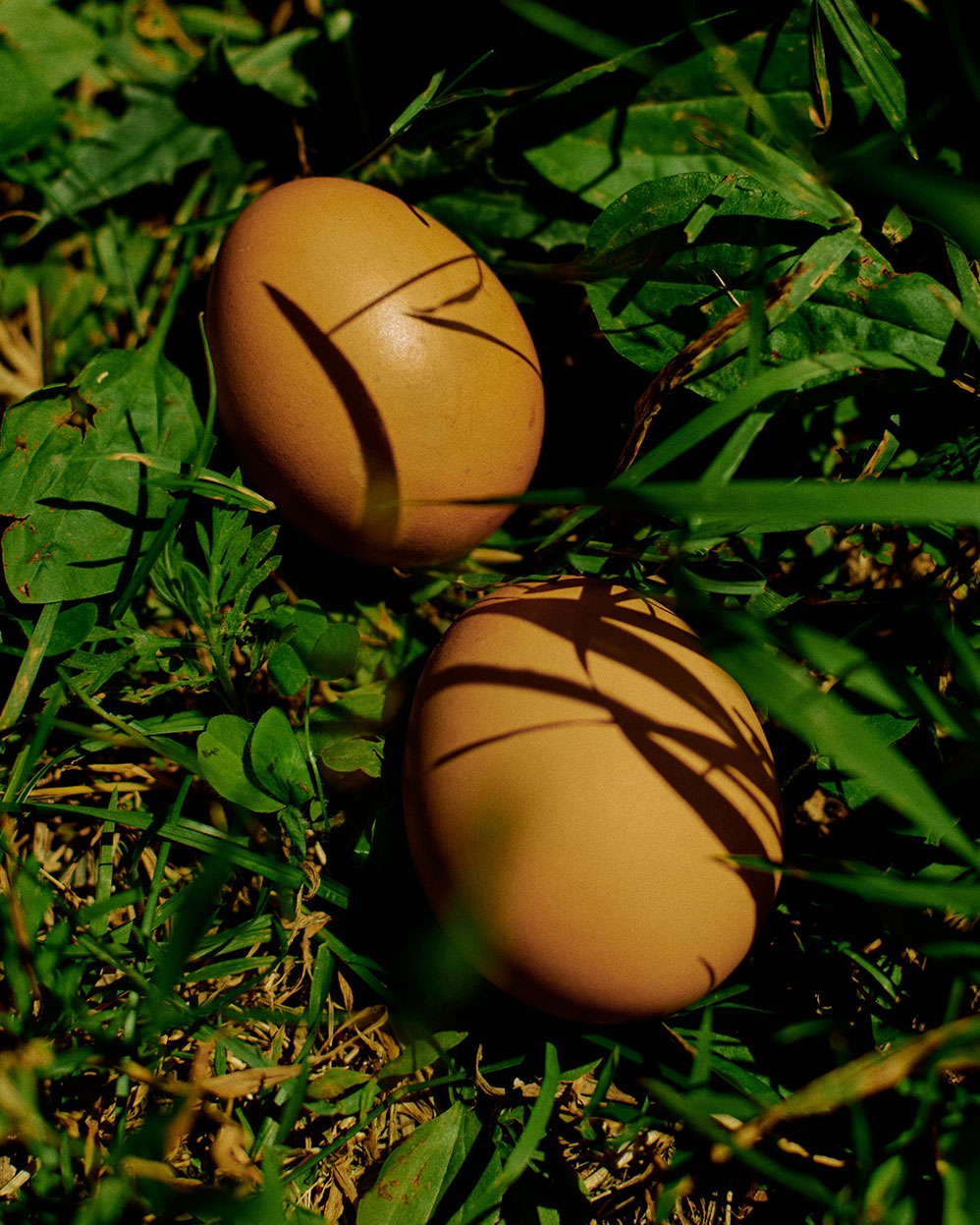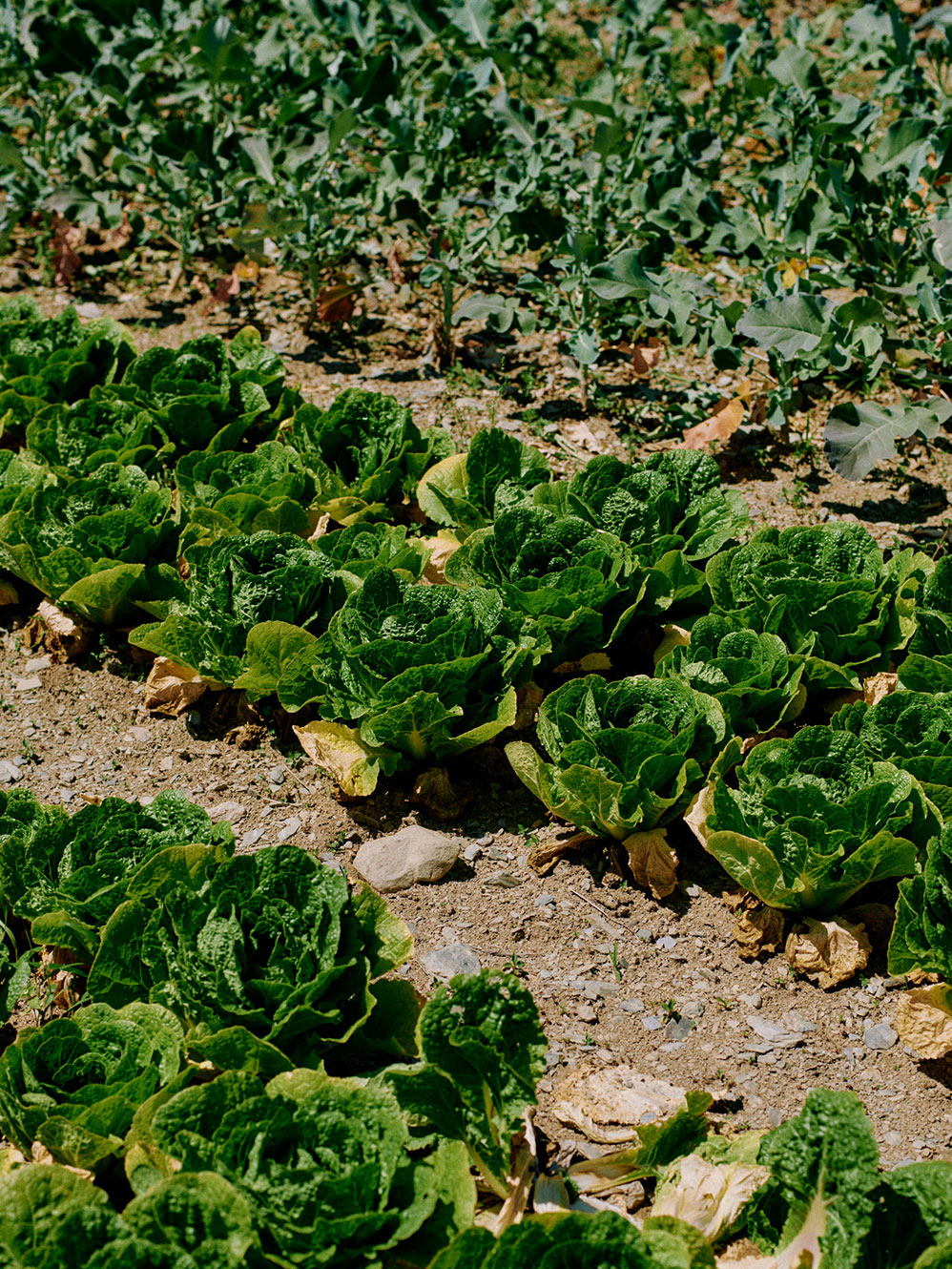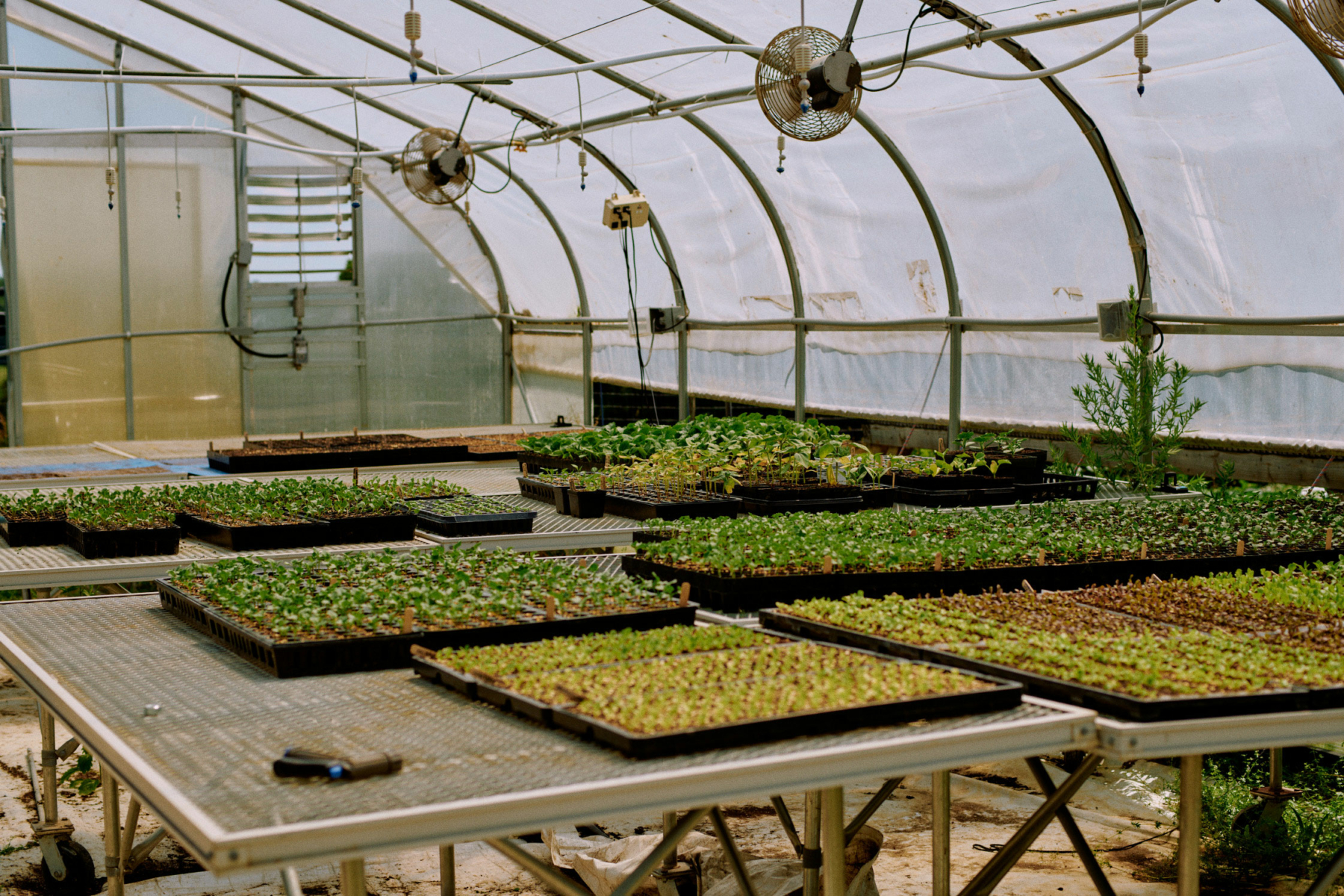The team at Sky High Farm, a nonprofit set on 40-acres in Ancramdale, New York, is on a mission to provide programming and training to directly address inequality within the food system. Through their collaborative initiatives in the realms of art, fashion, and design they are also effectively fundraising and expanding a critical conversation that connects regenerative farming practices, social justice, and creativity.
Driving Northwest from New York City in spring and summer, one quickly leaves behind a cement landscape and enters the lush farm country of the Hudson Valley. Acres of fruit trees, fields full of vegetables, and farm stands stretch in every direction—it’s hard to believe this is only 100 miles from the city. Despite the bounty of fresh food, these locally grown fruits and vegetables rarely reach the food-insecure communities throughout the state. Sky High Farm, a nonprofit located in this verdant landscape, seeks to provide a link between farming, fresh produce, and food access, with a larger goal of directly addressing the structures that create inequality in the US food system.
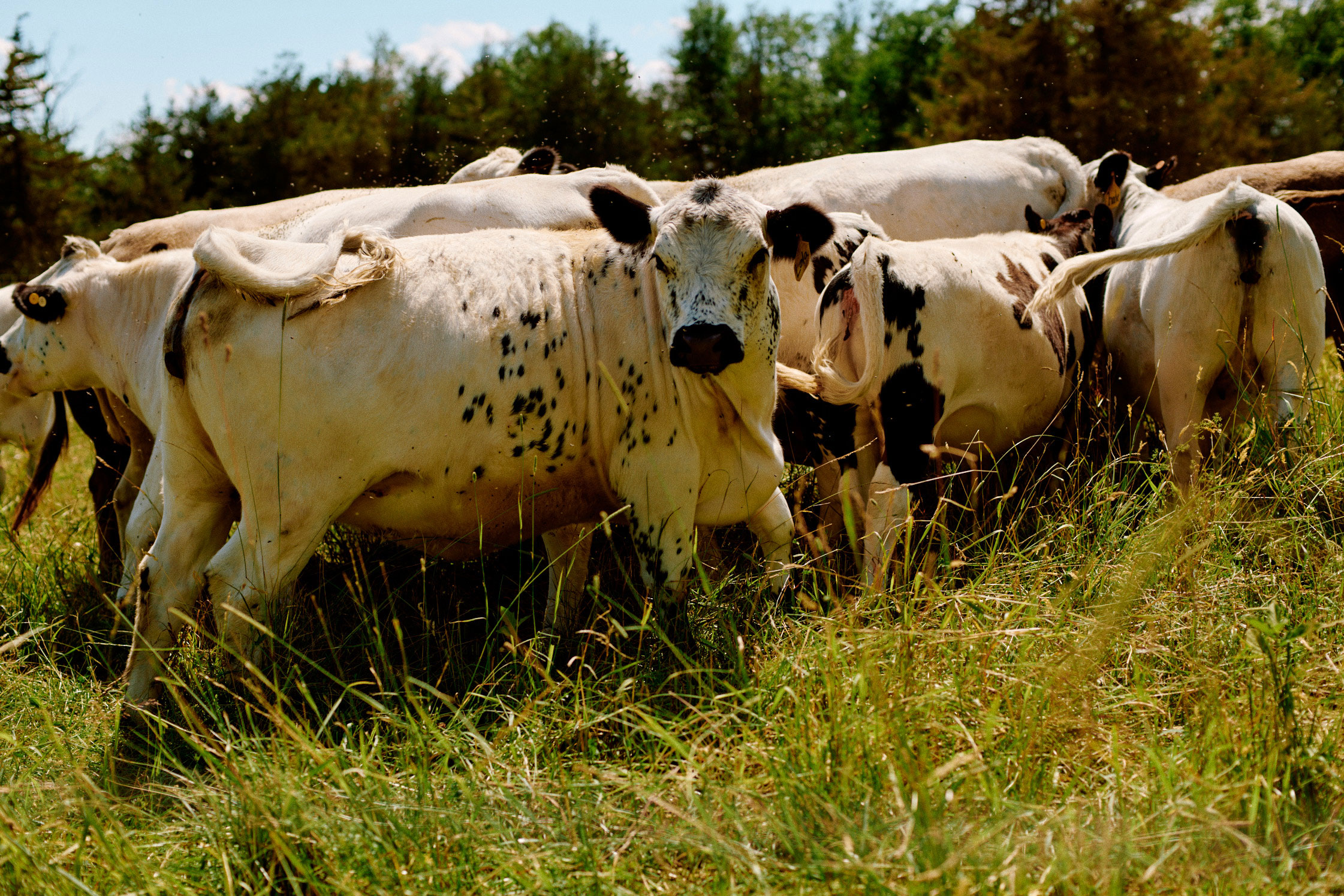
The vision for Sky High Farm began to take shape in 2011 on the 40-acre property in Ancramdale, New York owned by Dan Colen. Soon after the New York City-based artist moved to the site, he started working with a farmer to cultivate the land for food production. He didn’t know much about farming but by moving to the plot of land, he was seeking open space, to get out of the city, and to, in some way, take on a project that would be of service to a larger community. From the beginning, Josh Bardfield helped to formulate the vision for the land and brought with him a background in public health program, design, and implementation. Josh had previously worked on HIV quality of care issues and had focused on systems design and patient care. He was excited about addressing health care in a broader sense, and given his background understands the importance of food and nutrition with respect to patient care, particularly in resource-limited settings. Lexie Smith, a baker, artist, and writer with an interest in local and international food systems, joined as Program Manager in 2021. Lexie’s interest in farming is an extension of her passion for baking bread. “As a bread baker, I bake with sourdough and what makes me care about sourdough is the way you can’t force it to do anything it’s not going to do. Farming is the same way, only on a much grander scale.”
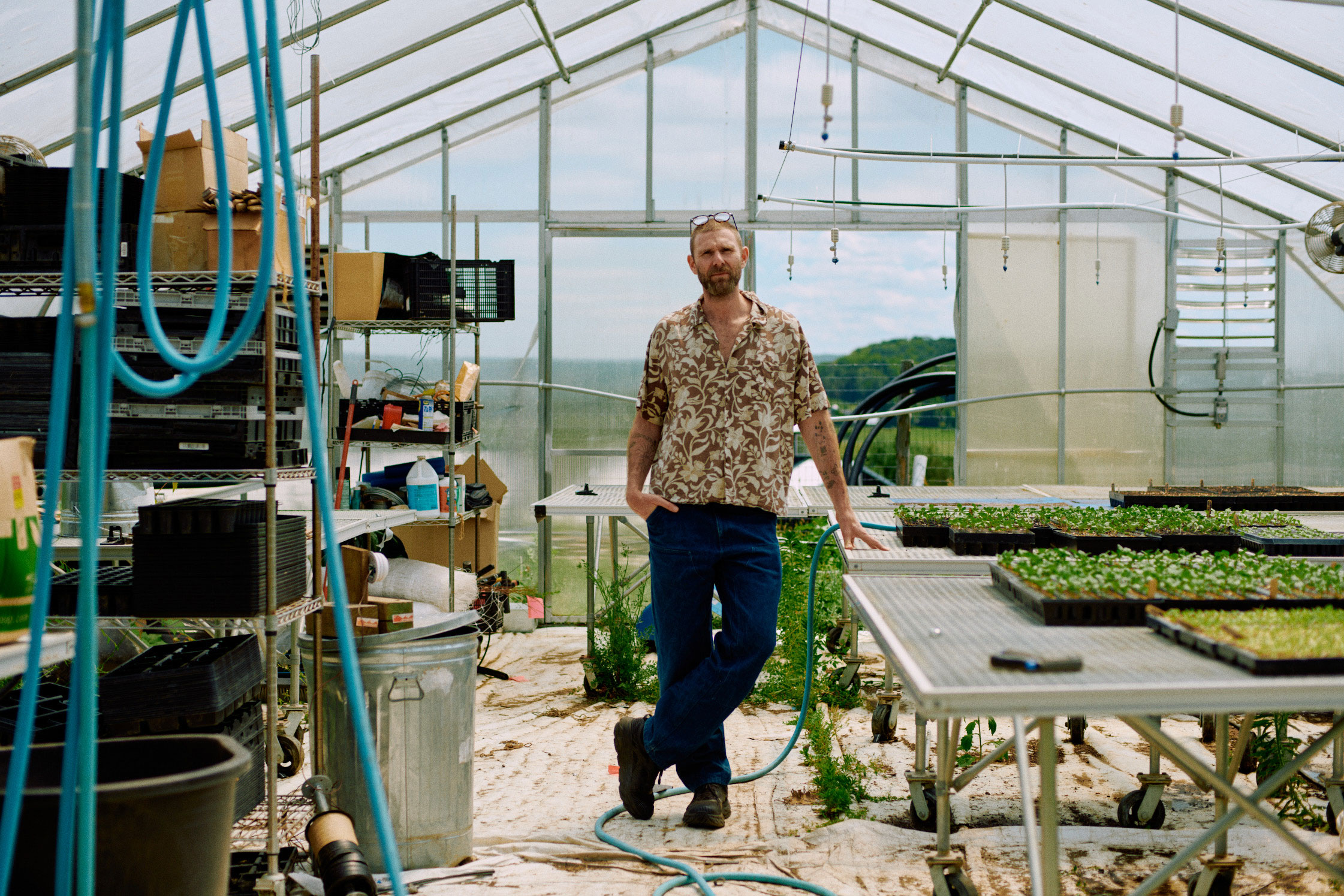

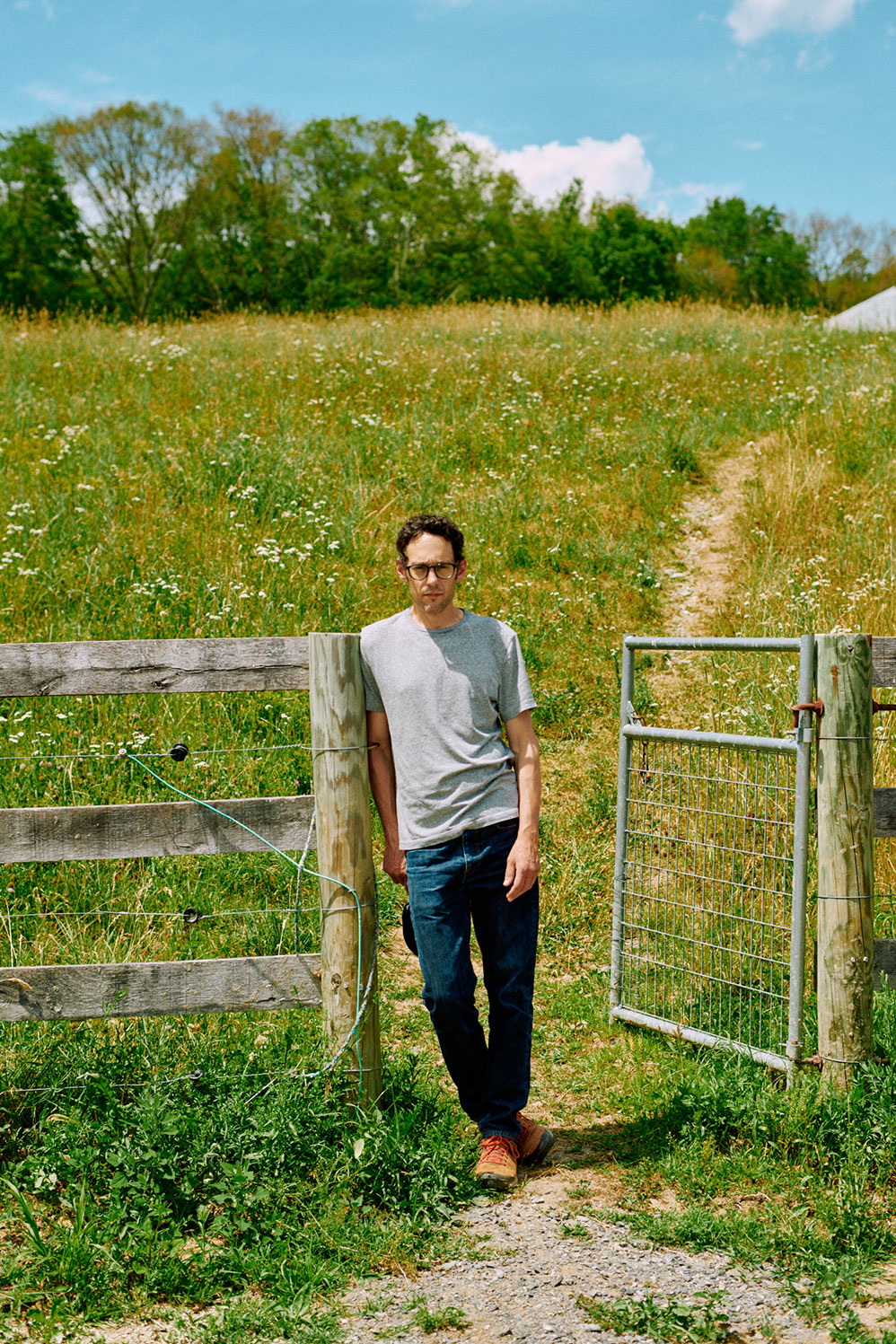
Today, the team working with Sky High also includes farmers, experts in regenerative practices, those trained in animal husbandry, as well as recent graduates interested in social justice. The goals and team members involved were not always as concrete as they are today; much like the practice of farming itself, as well as any creative act, the farm’s evolution was an intuitive and organic process.
After many conversations, Josh and Dan decided they wanted to use the 40-acre farm to address food insecurity and inequality within the food systems in New York but they didn’t know exactly where to start. They called food banks, spoke with community foundations, and local neighborhood groups in New York City. They learned—among other things—that much of the food donated to those in need (through food banks and fundraising efforts) is in the form of packaged, canned, and processed products—food that significantly lacks nutritional value. The more insights they gained, the more they realized that they could help to fill this gap and provide fresh fruit, vegetables, and healthy protein to communities without access. Josh outlines, “the fundraising piece happened in parallel to our own internal organizational development that involved intensive strategic planning.” All the while, through a network of food access partners rooted in the communities they serve, Sky High Farm has donated 87,000 pounds of produce and 50,000 pounds of meat to food pantries, food banks, and other food access organizations around New York State. Now, beyond growing and donating food, they have plans to support, teach, and empower those from the communities that they serve to become farmers themselves.
“We produce a lot of food that’s donated, but we know that we’re not going to solve the problem by donating food. The problem that we’re trying to solve is systemic.”
– Josh Bardfield
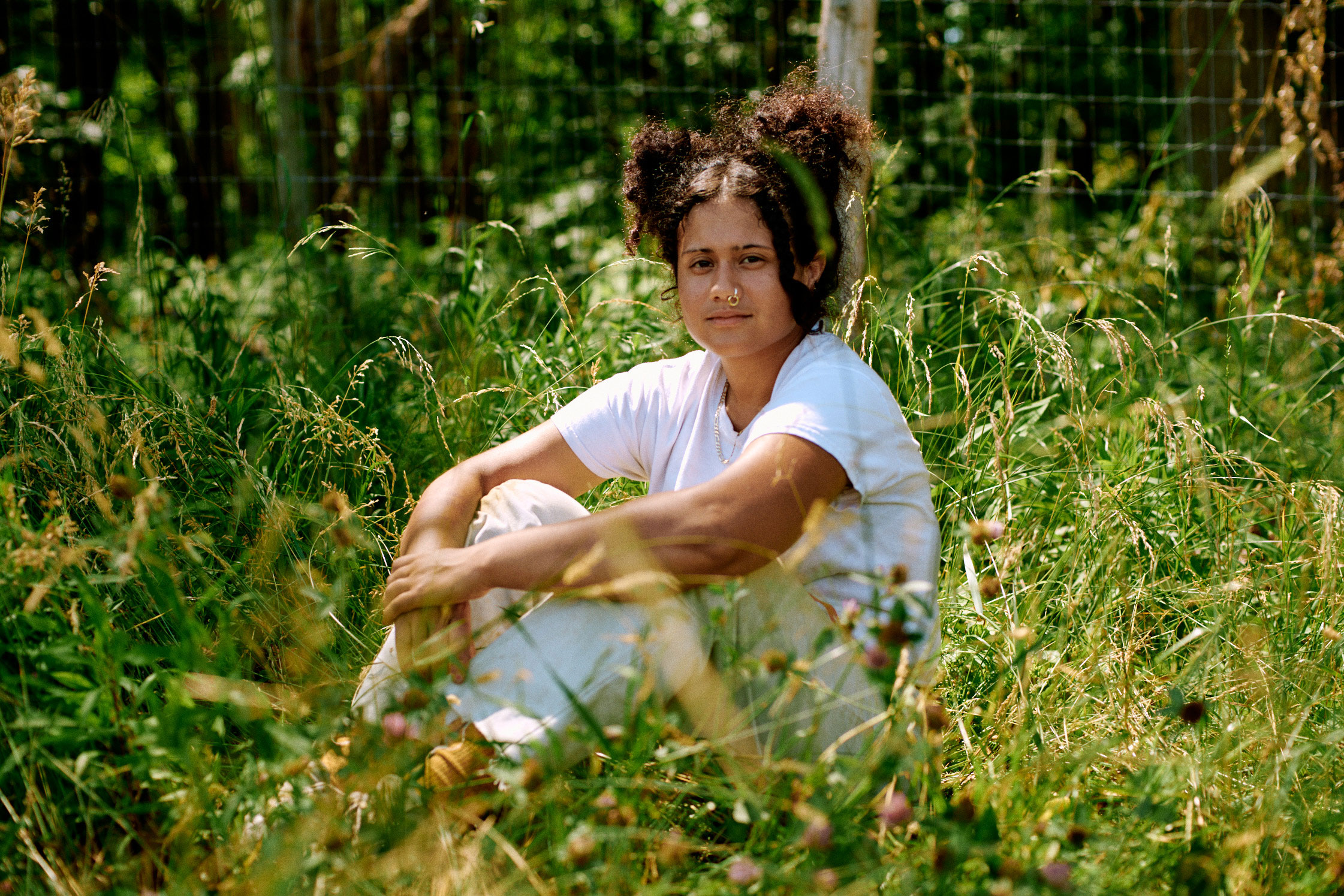
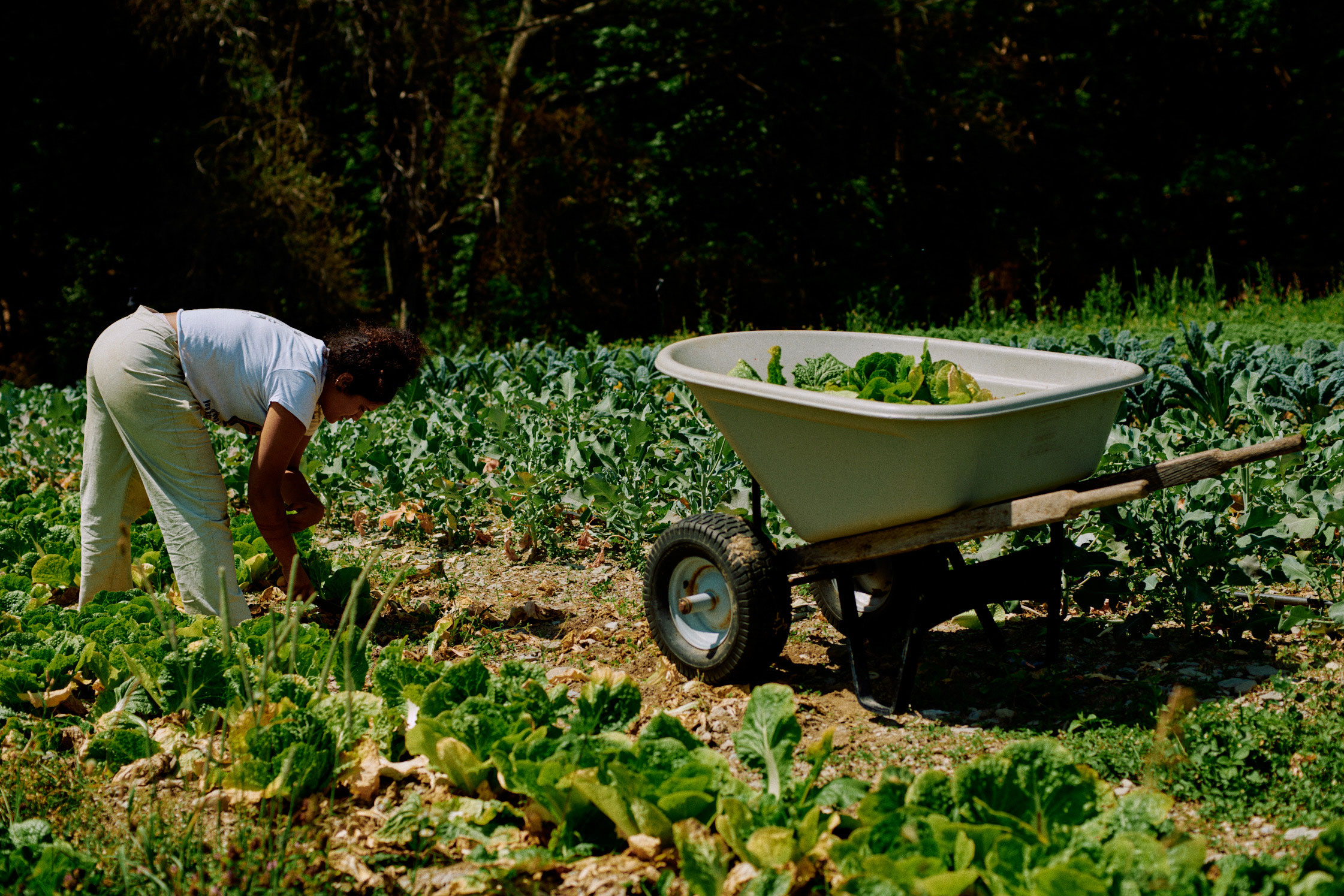
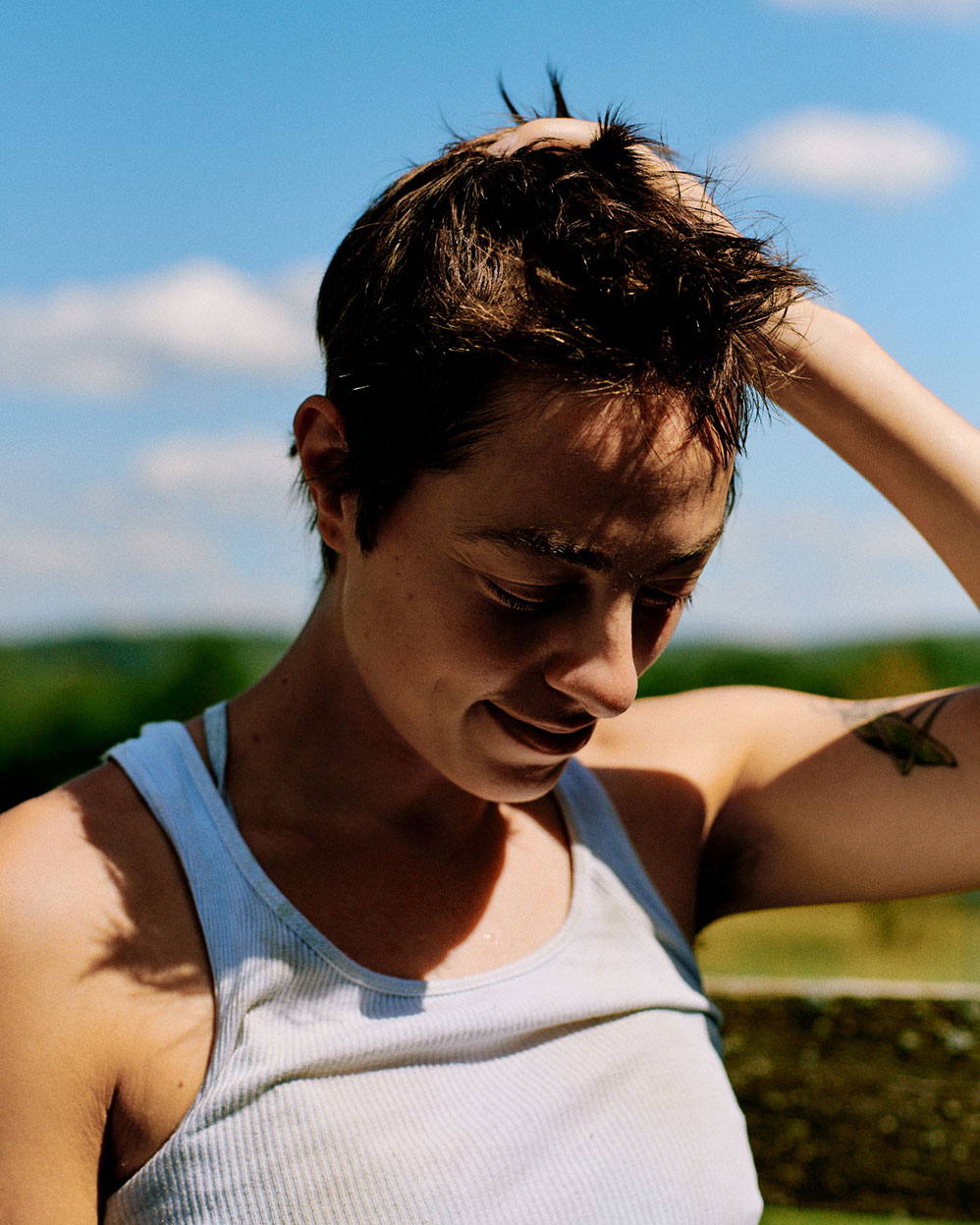
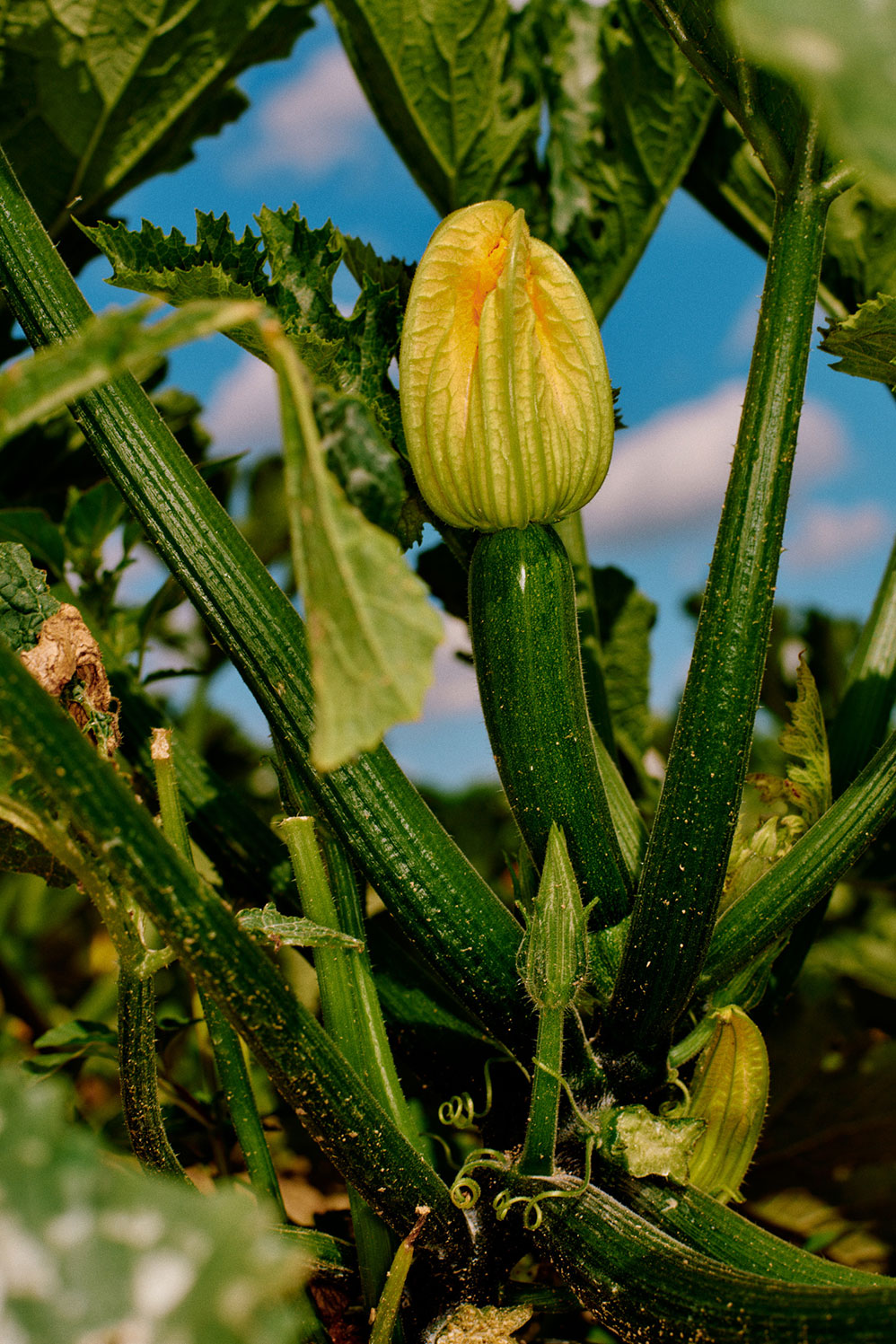
“We are invested in building actual pathways towards food sovereignty. And what that word really means is that you provide people with the resources they need to develop their own agricultural system.”
– Lexie Smith
There is a strong creative anchor in the work that is done at Sky High Farm, much inspired by Dan’s own creative practice and the larger community of creative people involved in the operation. The team incorporates art, culture, and fashion to expand the dialogue about food justice and ultimately push the conversation into unconventional spaces—they want a bigger audience to be paying attention to the need for regenerative farming practices. This method is based on a holistic approach to working with the land—a process of farming centered on enhancing, strengthening, and improving the soil, water, and larger ecosystem. Josh talks about the vision for the nonprofit saying: “I think that the issues that we’re trying to tackle are much larger than anything that we’re able to accomplish as a single organization. And so, if we’re given an opportunity to bring Sky High Farm into a gallery, we’ll do it. And it’s not to say that all the people who know about the farm are going to get involved in a meaningful way … But if we can build awareness, that’s the first step in the process of creating impact.” One element in the success of Sky High Farm is the team’s wide range of skills, unconventional backgrounds, and creative problem-solving. Josh has a different way of working through the operations than Dan. “I think that Dan and I probably complement each other well—I’m pragmatic and detail-oriented and appreciate the need for systems and protocol. And I think as an artist, he’s always thinking about how to push Sky High Farm to navigate from a place of creativity, inquiry, and is generally more unconventional.” An example of this synergy is how they support their programs. The team fundraises through traditional channels including their board, grants, and foundations and in early 2022, Dan, now the farm’s Board President, and Daphne Seybold, a founding board member, created a fashion brand called Sky High Farm Workwear, built solely to support the farm’s work. The company creates clothing and accessories that feature their friendly logo with a smiling strawberry, moon, and puffy clouds. Sold in shops like Dover Street Market or Nordstrom, and online through their own shop, their designs are highly desirable, often selling out soon after a new product is launched. Most importantly, all proceeds go back into the farm and ultimately help to fuel their mission.

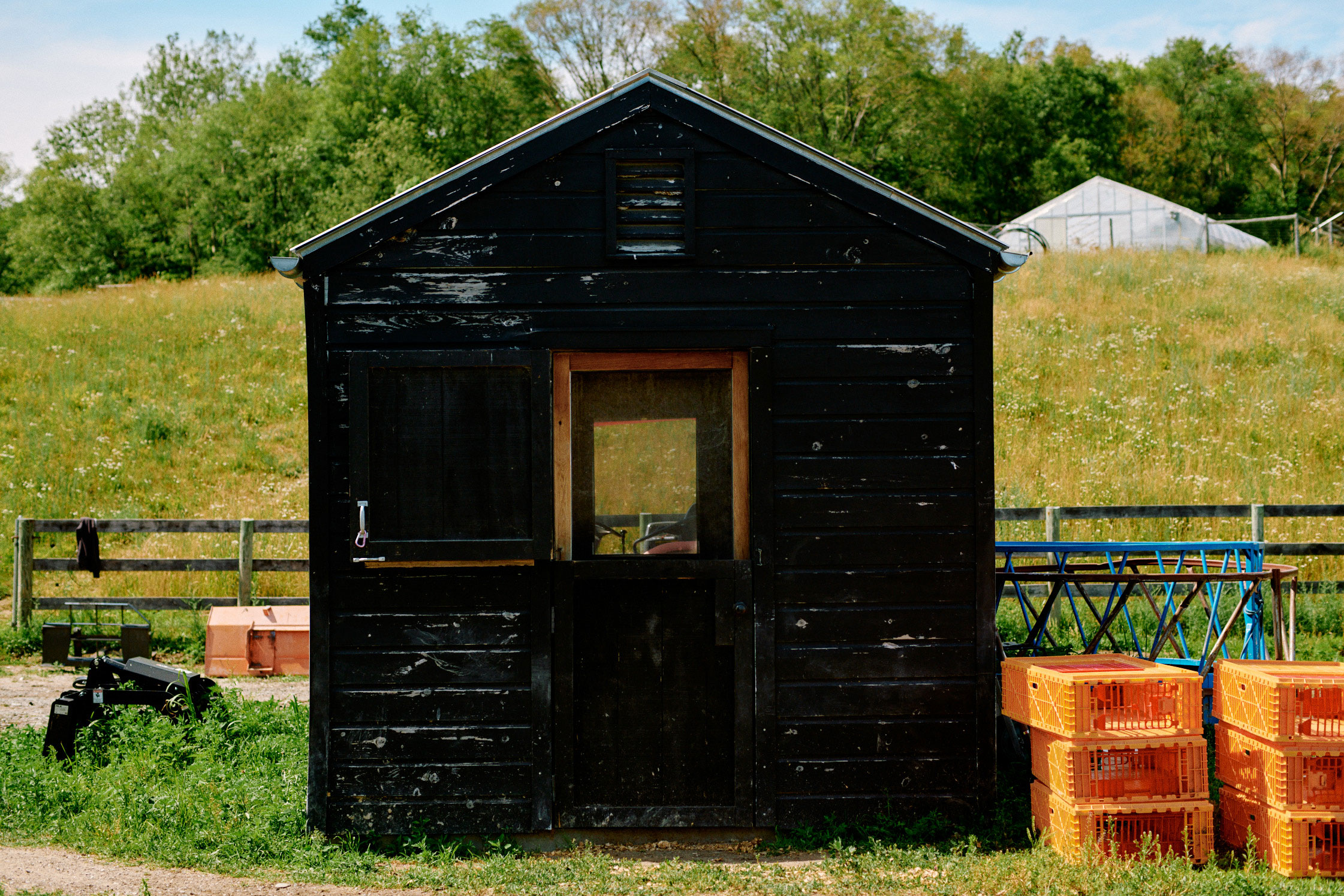
No day seems to be the same for Josh as his job lies in balancing the operations of running a farm with a more macro, strategic plan—he’s always thinking through how to fundraise enough to make their long-term goals possible. As an example, he mentions that a Professor of Biology and his student from Bard College, not too far from the farm, visited that week to evaluate the soil. “By focusing on soil health, we hope to do a number of things including boost richer microbial diversity in our soil, represent a reservoir of microbial diversity that can positively impact the surrounding environments and will minimize the spread of potentially harmful bacteria and antibiotic resistance genes. To test these predictions, we are characterizing bacterial and fungal diversity as well as total gene content at 27 different sites across the farm to represent the broad range of ecological niches found on our farm. More specifically, the sites were chosen based on the idea that our farming practices evolve over time at different locations on the pasture and in the vegetable garden, e.g. intensive rotational grazing and no-till cultivation.” The work calls for a mix of larger picture planning with a curiosity in the micro details like those that the Bard team is studying.
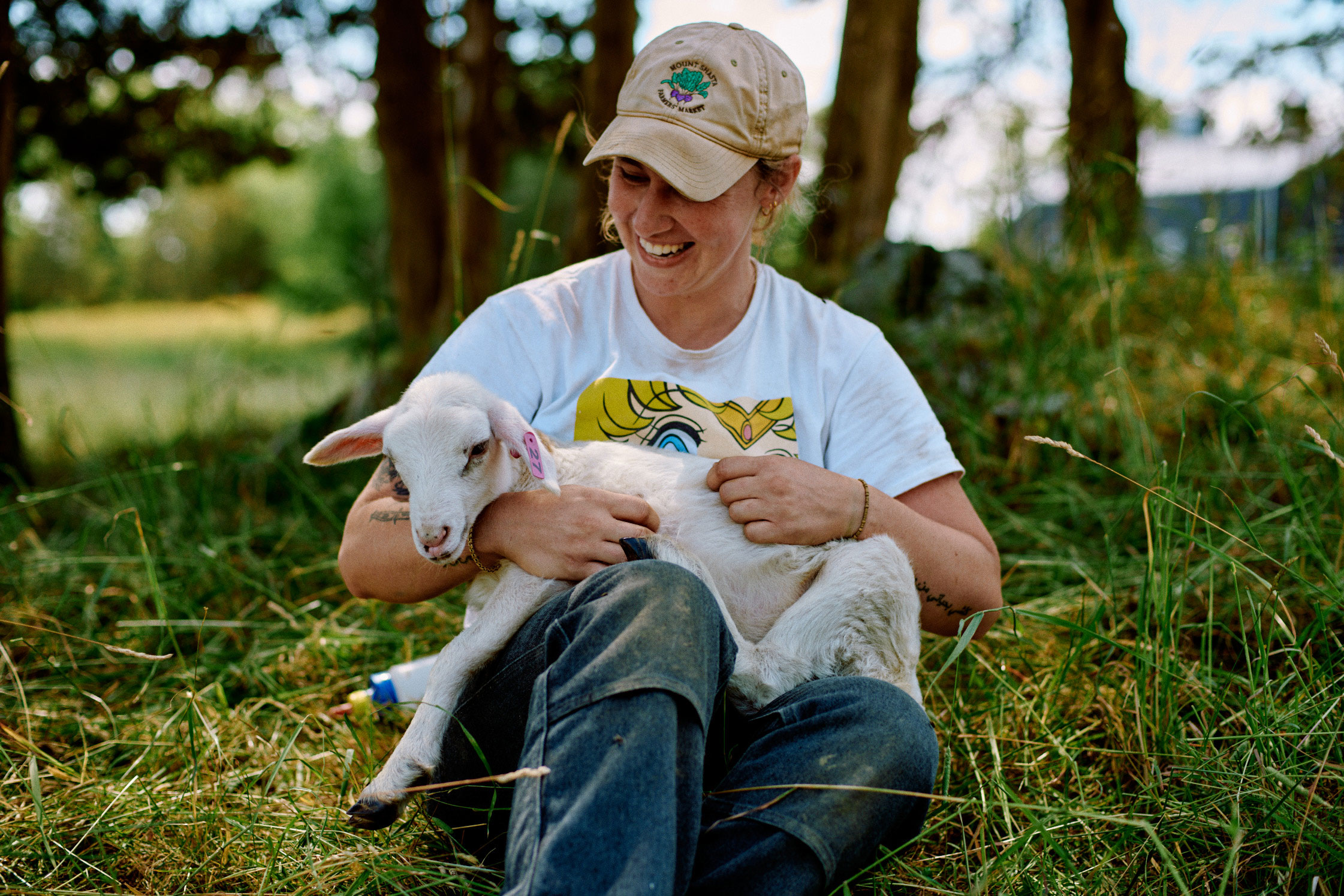


When talking to Lexie and Josh, they both, in their own way, speak about their wish for Sky High Farm and its programming, fundraising, and educational efforts to be unnecessary. Lexie points out that “… one of the things about Sky High is that it shouldn’t need to exist. In more basic terms, the American food system is very uniquely propped upon this history of enslavement and exploitation, and oppression … It’s just a fact.” Ultimately, the work that they are trying to do on both a large and small scale is critically needed. To address this need, they have started to expand their efforts to include the Sky High Farmer Training Fellowship Program, which launched in May of 2022. This paid educational program is set up to teach those interested in farming the skills needed to manage livestock, vegetable production, and food processing, while also exposing students to the business skills and operational side that goes into running a farm. They want Sky High to be an incubator for more farms, owned and managed by those who have been historically marginalized, especially in the business of agriculture, farming, and vegetable production. Josh speaks to this larger hope, “we produce a lot of food that’s donated, but we know that we’re not going to solve the problem by donating food. The problem that we’re trying to solve is systemic. We want to be offering opportunities for agricultural education specifically for the communities that we’re serving.” Their initiatives have further expanded to include a grant opportunity with $250,000 earmarked for projects initiated by other farmers and food justice advocates working within their communities to address food insecurity and access. They have also built a partnership with Forge Project, a nearby arts organization that is Indigenous-led where they’ve constructed an outdoor learning kitchen. These programs are built around, as Lexie describes, “the idea of investing in people and investing in communities as opposed to just investing in this property … We are invested in building actual pathways towards food sovereignty. And what that word really means is that you provide people with the resources they need to develop their own agricultural system.”
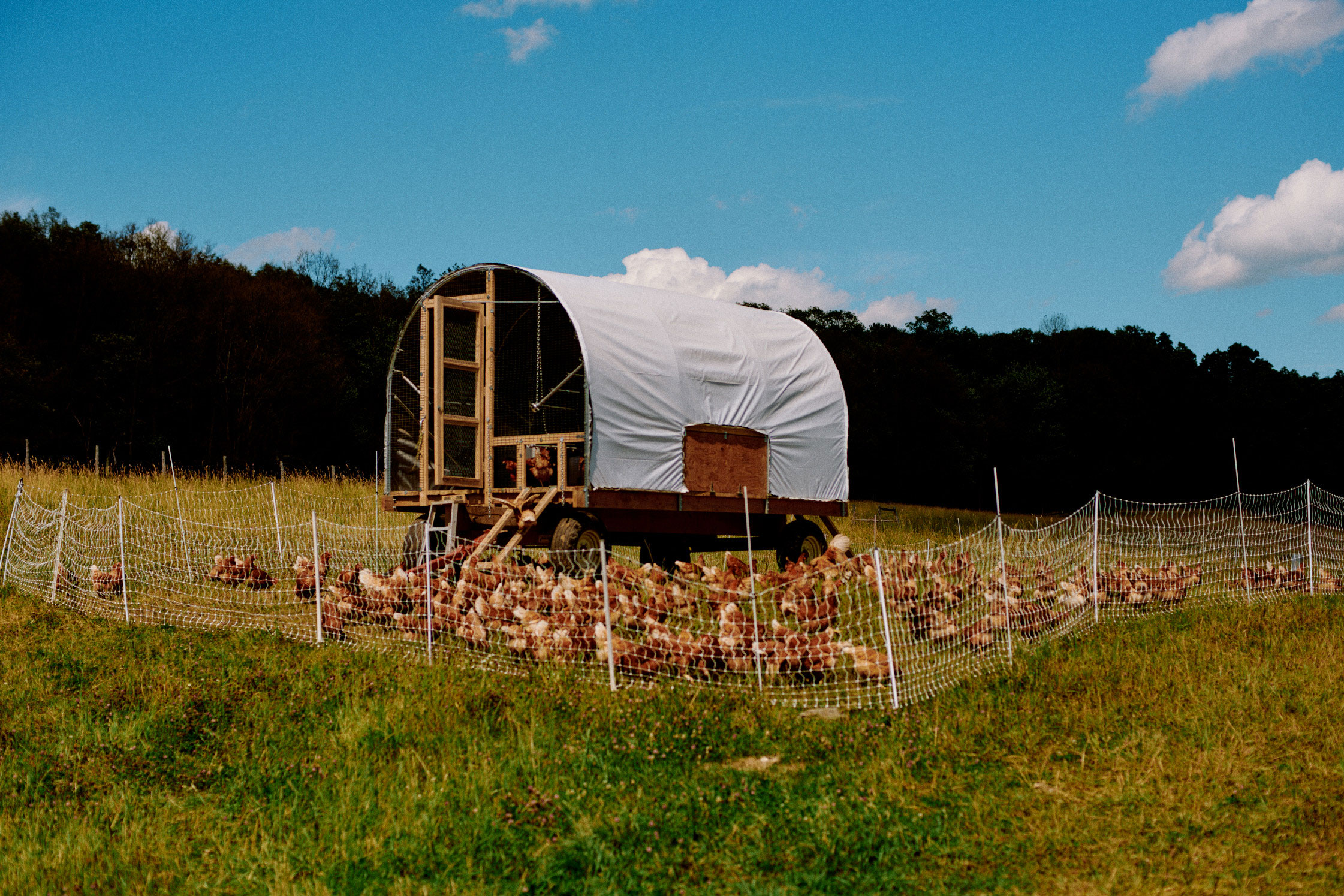
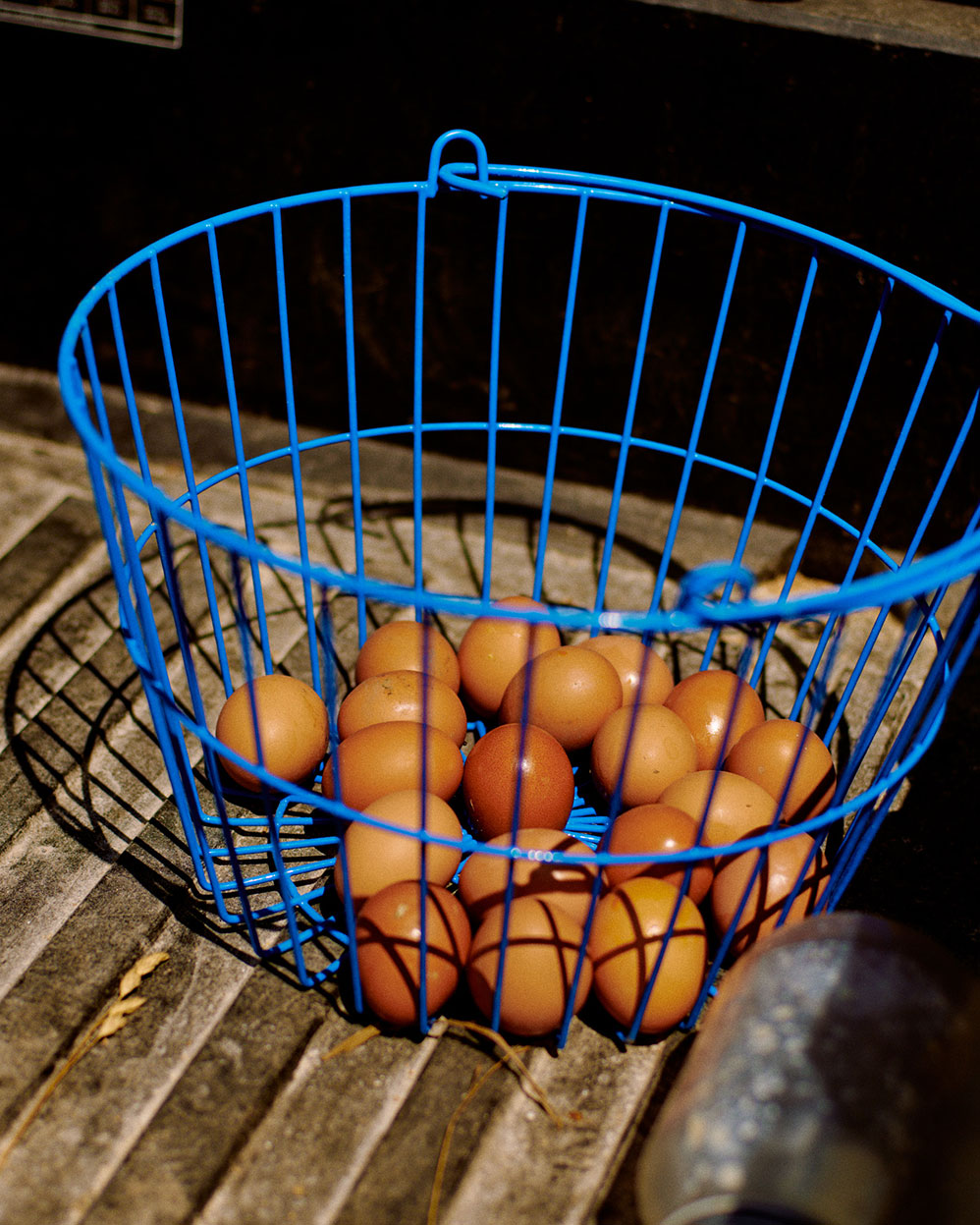

Their goals are ambitious, necessary, evolving, and informed by a slower, environmentally sensitive, and deeply creative mindset. As Lexie points out, “some fruit trees take eight years to bear fruit. Some take longer than that. In parallel, Native American people have this way of thinking and decision-making that considers seven generations ahead.” The team at Sky High Farm is approaching the problems of food insecurity from multiple backgrounds, with varied skill sets, and as artists. They are uniquely interested in responding to what is most needed within a given community and have developed a way of working that doesn’t shy away from long-term goals and experimentation. While their approach might take some time to bear fruit, the team’s spirit sets an extraordinary example for those looking to create an impact in the field of farming and food access.
Sky High Farm is a nonprofit set on 40-acres in upstate New York. Founded in 2011 the team behind Sky High Farm is on a mission to increase food access and advance a food system rooted in social justice. To learn more about the team, training, and grant program, visit the farm’s website and Instagram
This piece is part of our New Futures series, where we explore how creativity is used to imagine alternative futures and build new realities and ways of living. By highlighting Sky High Farm, Friends of Friends hopes to bring attention to creative initiatives that prioritize intersectional perspectives on social justice.
Text: Amelia Lang
Photography: Caroline Tompkins
